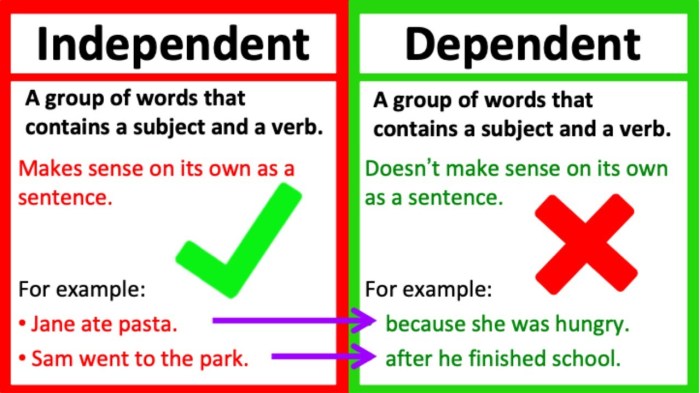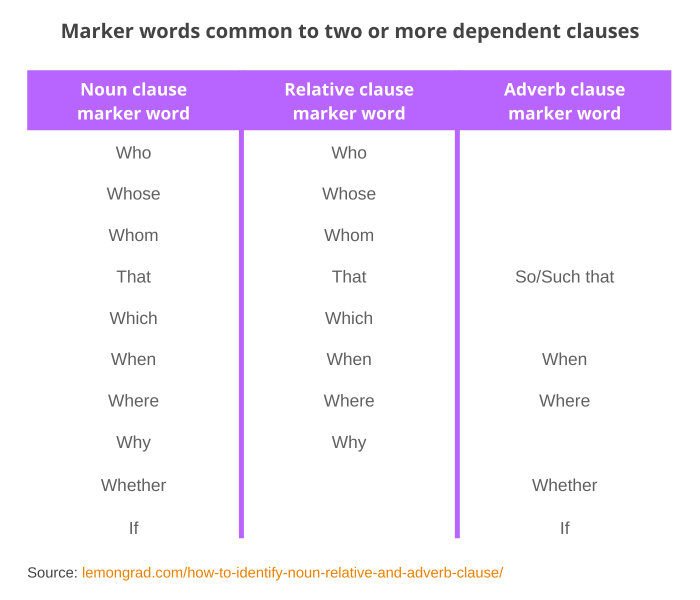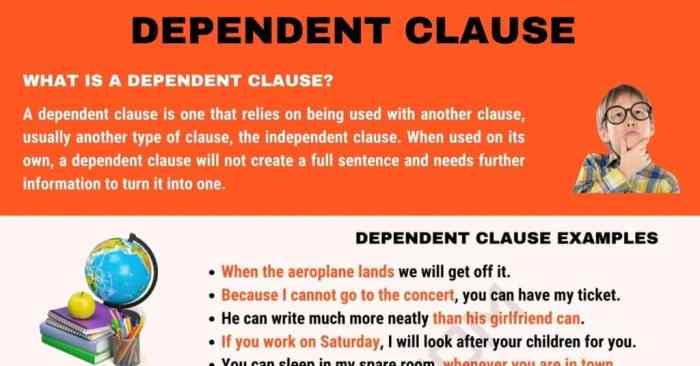In which sentence are the italicized words a dependent clause? This question delves into the intricacies of sentence structure, exploring the relationship between dependent and independent clauses. By understanding how to identify dependent clauses, writers can enhance their writing with complex and nuanced sentence structures that convey precise and engaging ideas.
This guide will provide a comprehensive overview of dependent clauses, including their definition, structure, and usage. We will examine sentences with italicized words and determine whether they form dependent clauses. Additionally, we will explore the purpose and function of dependent clauses in sentences, demonstrating how they contribute to the overall effectiveness of writing.
Dependent Clauses

Identify the Italicized Words in the Sentence
In a sentence, italicized wordsare typically used to emphasize or highlight a particular word or phrase. These words are usually adjectives, adverbs, or nouns that provide additional information about the main subject or verb of the sentence.
Determine the Main Clause in the Sentence
A main clause is the independent part of a sentence that can stand alone and convey a complete thought. It contains a subject and a verb and expresses a complete idea. To locate the main clause, look for the part of the sentence that makes sense on its own, even if the rest of the sentence is removed.
Analyze the Relationship between the Italicized Words and the Main Clause, In which sentence are the italicized words a dependent clause
A dependent clause is a group of words that cannot stand alone as a complete thought. It relies on the main clause for its meaning and is typically introduced by a subordinating conjunction. To determine if the italicized words form a dependent clause, check if they are introduced by a subordinating conjunction and if they cannot stand alone as a complete thought.
Examples of Sentences with Dependent Clauses
| Original Sentence | Italicized Words | Type of Dependent Clause ||—|—|—|| Although it was raining, we decided to go for a walk. | Although it was raining| Adverbial clause of concession || The movie was so good that I watched it twice. | that I watched it twice| Adjective clause of result || When the sun sets, the sky turns a beautiful shade of orange.
| When the sun sets| Adverbial clause of time |
Elaborate on the Usage of Dependent Clauses
Dependent clauses play a crucial role in sentence structure and enhance the complexity and richness of language. They allow writers to express complex ideas and relationships between ideas. Dependent clauses can be used to:* Provide additional information about the main clause
- Express a condition, reason, or result
- Compare or contrast two ideas
- Show the time or place of an event
Clarifying Questions: In Which Sentence Are The Italicized Words A Dependent Clause
What is a dependent clause?
A dependent clause is a group of words that contains a subject and a verb but cannot stand alone as a complete sentence. It relies on an independent clause to complete its meaning.
How can I identify a dependent clause?
Dependent clauses often begin with subordinating conjunctions such as “because,” “although,” “if,” and “when.” They can also be identified by their lack of a complete thought or by their placement within a sentence.
What is the purpose of a dependent clause?
Dependent clauses provide additional information or context to the main clause of a sentence. They can express cause and effect, time, contrast, or other relationships between ideas.

